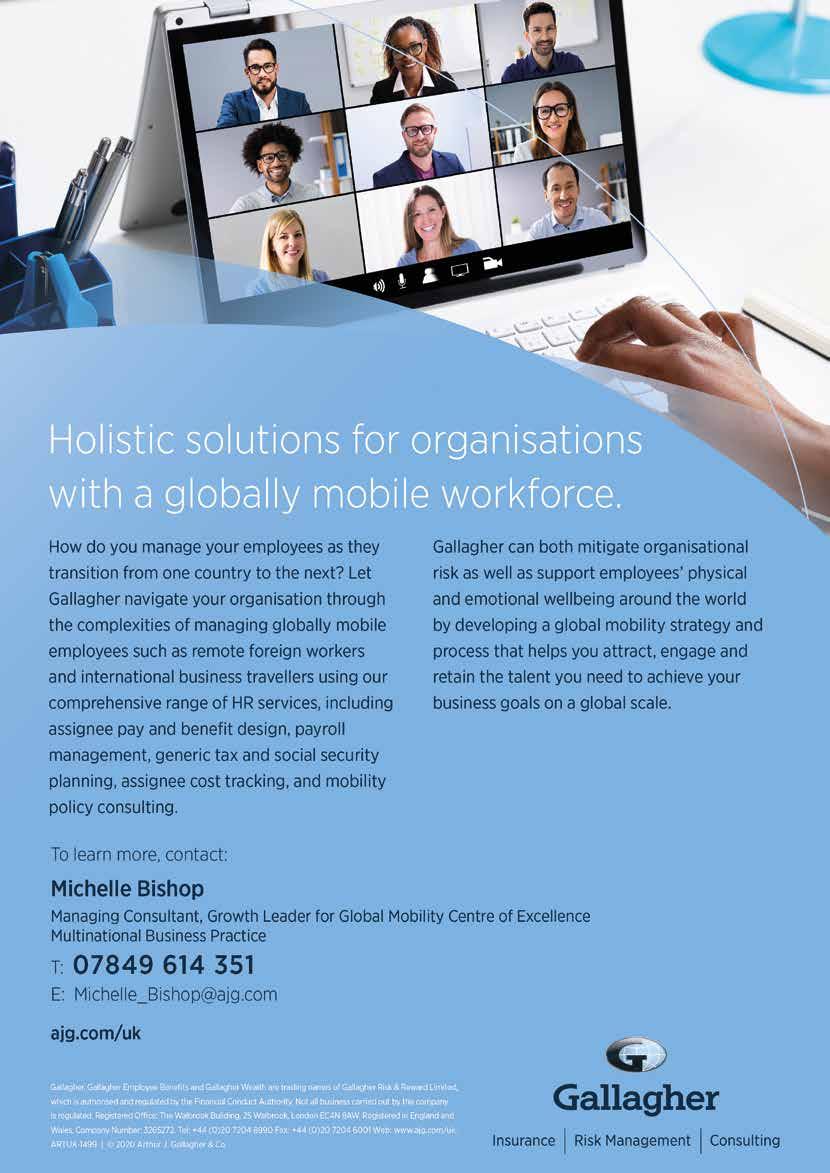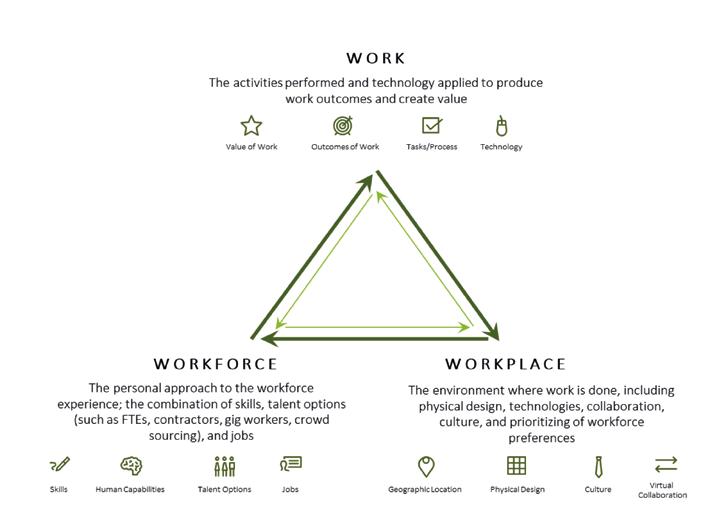INTERNATIONAL HR ADVISER AUTUMN
Cultural Adaptation: Is It Mission Critical In The ‘New Normal’ International Work Arrangements? This article will address why organisations need to recognise the impact of cultural adaptation and integration when deploying talent internationally. As we move into a new decade, organisations and governments are coming to terms with surviving and adapting to new opportunities and challenges in both emerged and emerging markets. Organisations are increasingly drawing on diverse talent from new sources on a global basis, yet, paradoxically, governments seek to pursue more nationalist agendas. As the current COVID-19 pandemic is only likely to add greater complexity to these trends, organisations will seek to fulfil their objectives, while mitigating any risks in this ‘new normal’. • Subsequently, traditional Global Mobility models are shifting to address different business and talent agendas • Even with a variety of policies available, how effectively do organisations ensure that their employees and their families are culturally and emotionally prepared for life in a new arrival country?
This article will address why organisations need to recognise the impact of cultural adaptation and integration when deploying talent internationally 18
• Historically, organis ations have particularly used cultural and language development programmes for those traditional international assignments that are expected to have critical, strategic impact for the host entity. • Often, the decision is based on the leadership acknowledgement that this is a sound investment, rather than a soft cost that can be eliminated from budget. How much more critical though, will this be in a post COVID-19 environment as new work arrangements emerge, with a continuum of modified assignment and relocation provisions - including virtual assignments - as there are so many more aspects to consider?
The Growth Of Differential Investment In Mobility Programmes
Prior to the COVID-19 outbreak, the use of a wide variety of international assignments reflected the key strategic direction multinational organisations were continuing to follow to manage global activity. Undoubtedly, this strategy is likely to shift significantly as the world comes out of lockdown; most likely with a rise of virtual assignments over more traditional options. How these will be managed post-COVID-19 is still to be determined, with this fluid picture mostly likely to continue evolving over the next 12-24 months.
Does Familiarity Breed Contempt?
We have become acclimatised to often living in a volatile, uncertain world. Regardless, this is certainly not a precursor to a slowdown in the war for talent. We live in a global village where social media would make us believe that, via shared content found on the internet, in videos and documentaries, we all have a common understanding of cultures, language and shared values. However, the opposite is probably closer to the truth, exacerbated by the increasing number of nationalistic agendas. In the Global Mobility industry, this remains ever clear, as policies are often adapted for hardship, or challenging locations.
Fig. 1 - Most challenging assignment destinations #1
USA
#2
China
#3
India
Source: Extract from Santa Fe Relocation GMS 2019 p.56
Fig. 2 - Why are destinations challenging? Top four challenges. #1
Cultural Differences
40%
#2
Immigration Complications
38%
#3
Concerns About Personal Security And Safety
34%
#4
Language Difficulties
34%
Source: Santa Fe Relocation GMS 2019 Fig 34 p.56: Why are these destinations most challenging
In the midst of this, organisations are seeking to: re-balance how they attract people with the right future and culture-proofed skills and competencies, nurture global and local teams that associate with organisational culture, and embed new workplace systems and processes that leverage Artificial Intelligence (AI) and digital platforms that drive workplace analytics. • With the advent of more virtual working, the ability to interculturally integrate with virtual, global teams will become absolutely vital • This is never truer than in today’s global talent market, brokered by organisations’ talent teams in their insatiable quest for the next ‘super’ talent, who will be globally mobile and able to integrate seamlessly into local communities, embrace new work-life experiences and deliver day-one business outcomes.
The Assignee Lifecycle
Unarguably, an international assignment is defined by numerous stressors. These include the uncertainly and shifting demands that come with a new role while having to adapt to a new culture and way of life (and potentially a new language).










